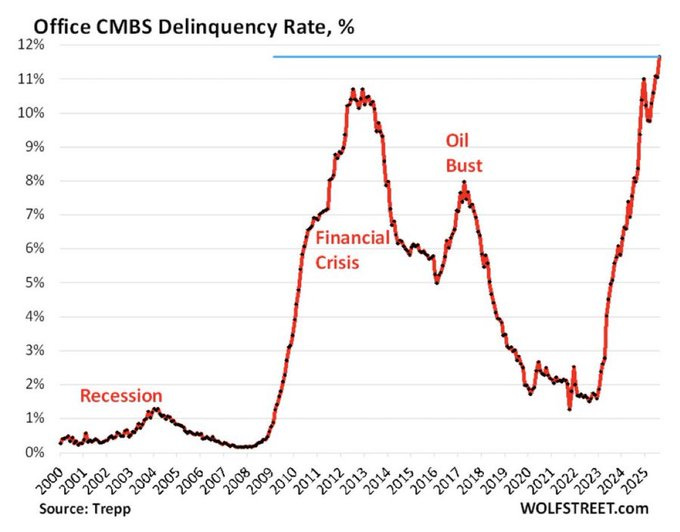The office is safe, we don’t need to talk it up
ALSO: How to up your small talk
There was a ripple of interest this week when Microsoft announced a RTO push. The Washington Post declared that ‘another wave of return-to-office crackdowns is coming’ and lots of news outlets covered the announcement without looking at the details.
Those details bear reading, the update was that the firm was moving policy from 2.5 days onsite to 3 days. This was additionally only for workers who lived within 50 miles of an office. Oh and also, it wasn’t a mandate, managers were told they could create their own rules based on their own team dynamics. Not so much the final push for the office, but a tidying up around the edges of a policy that seemed pretty well set.
It follows a pattern that is broadly observable across the UK: big corporate organisations asking for 3 days in the workplace, smaller firms expecting something slightly less. You might conclude that more office time is the payoff for being in a bigger bureaucracy with more relationship connections that need to be serviced. The numbers of people working at home have barely changed in 3 years, there’s nothing really to see here.
The disruptions to this gentle equilibrium come when senior leaders want to have their cake and eat it, reducing office space, introducing company wide hotdesks and having no anchor points for employees. Without allocated desks or designated areas for teams it’s routine to hear stories of people venturing into the office to not to see colleagues for the majority of the day.
I worked with one organisation who had saved on city centre space to such an extent that they now found themselves dealing with employee backlash. Colleagues’ orders to be in the office for three days resulted in them having an experience like squeezing onto an overbooked train on Christmas Eve. Workers were routinely taking Teams calls while sitting on the floor of busy corridors. There was nowhere to hang coats on a rainy day.
The solution? They were now being told to ‘flatten the curve’ by coming in to the office on Mondays and Fridays to avoid the rush. Hmmmm, if you come into the office on a Monday and meet zero coworkers, did that elusive magic of culture ever really happen? What are we trying to achieve here? Have we maybe saved a little too much money?
Pre-Covid, finance directors used to look at office occupancy rates of 50 to 60% and speculate how much money they could save if they tried hotdesking or increased desk density. Now with most offices being empty on Mondays and Fridays a lot of leaders have made the call to downsize. The truth is that the greater the financial saving, the less effective the office is becoming. If you don’t encounter colleagues accidentally, if you aren’t able to have face-to-face time then there is very little point of spending time and money on a commute.
I was interested in an additional complication that I saw this week. New data suggested that mortgage backed office stock had reached a record ‘delinquency rate’ meaning that 11.7% of office mortgages that had been placed into securities weren’t keeping up with their payments. Old office towers are sitting empty and it’s rumbling to be a bigger issue than the 2008 financial crisis. In today’s podcast, Mike Wiseman from British Land assured me that this was largely a US issue, where lots of poor office stock hadn’t been maintained for years and was slipping into disuse.
Overall, beware of headlines saying that there’s another RTO push on the horizon. The issue is largely settled, the data isn’t moving.
Where there is a discussion is how to use the time we have together. For senior leaders the sad truth of that is that it’s increasingly a choice of useful vs cheap.
How behavioural psychology is shaping next generation workspace
In the context of the above discussion about the office I felt it had been a while since I had a conversation about how our physical workspaces are evolving. Post Covid disruption has made the property business hugely raise their games. With 20-25% of Gen Z workers self reporting having issues of neurodivergency the office is trying to prove that it's still the centre of great workplace cultures.
I chatted to Susan Carruth, a partner a 3XN, an architecture firm who is pioneering thinking about the needs of occupants and Mike Wiseman Head of Campuses at British land.
Listen: website / Apple / Spotify
RTO leads to brain drain: a research paper that looked at 3 million tech and finance workers found that RTO mandates led to big surges in employee turnover, concentrated in women, senior leaders and skilled employees
I’ve posted before about series 2, episode 7 of The Bear (you’ll remember it, it was just before it became the most boring show on TV) - check the posts out here and here. That episode directly paid homage to the restaurants of Will Guidara and his book Unreasonable Hospitality. Guidara’s eateries set out to be the highest regarded in the world, not only by delivering elite food but by offering the greatest hospitality of any venues on the planet. Overhearing a guest remarking that they’d eaten everything in Manhattan other than a New York hothog, the team went out, bought a hotdog and served it in haute cuisine style: ‘It was only then I realised I wasn't actually in the business of serving people dinner, I was in the business of serving them memories’. In the spirit of that I loved seeing what the behind the scenes team at Diary of a CEO did for their guest Jimmy Fallon. Actually dazzling
The New York Times published a lovely article about how small talk can be made more rewarding (secret: it’s when we skip into ‘pretend play’ and you can get better at this)
A TikTok about astronauts being hired for emotional intelligence (those who mirror their laugh are better able to connect with each other) - it’s actually drawn from the work of Charles Duhigg, here’s my podcast with him
I saw something this week that said your politics aren’t just your opinions on things they are an articulation of your values. Based on leaning into your values, shout out to the inspirational flotilla going to deliver food to Gaza right now. (Btw their use of Instagram is absolutely outstanding documenting their multiple attacks by drones this week - unsurprisingly the BBC didn’t cover these episodes). If you can both sides children dying of hunger it says more about you than it does about the situation
What a dizzying time to be living through. When a 23 year old this week told me that the world seems to be mad right now I felt able to accept that it wasn’t just my weary self that was feeling overwhelm. Thank goodness for pop music and tennis, eh? Is that just me? The Jade Thirlwall album is the best pop record of the year and I’m still reeling from how thrilling the conclusion to the US Open was. (Even if Ben Rothenberg is right in saying the first six round of the Men’s could have been an email)
Recent newsletters that you might like:






It's interesting that you call the office space thing a "complication"; I rather feel it's a driver of RTO. Many companies - my employer included (new building started 2019, moved in 2021) - are contractually committed to long leases on large office space and, I think, are feeling the cost is a sunk cost unless the occupancy justifies it. What annoys us is that they just aren't honest about it. If they would openly say "Look, we have a new building we're tied into and we need it to be occupied to justify the cost", I think people would be more understanding. Trying to dress it up as "you're more productive in the office" a) demonstrates an ignorance or disregard of the (nature of the) work people are doing and b) is felt to be plain dishonest. No wonder employees aren't happy about being forced back into an office for a number of days a week that reduces their productivity and, in some cases, their actual health.
There is an interesting paradox between balancing space, saving money and creating connection opportunities.
There’s no point going to the office if nobody you work with is there. So you have to use anchor days where people are in at the same time. If you have sufficient space, it requires you to have nearly enough square footage for everyone at the company.
You either 1. lose any cost savings that could have been gained through reducing office size, 2. don’t have enough space for people to work, or 3. remove the anchor day requirement (which to the point above, defeats the whole reason of having people come in).
It’s hard to have it all.